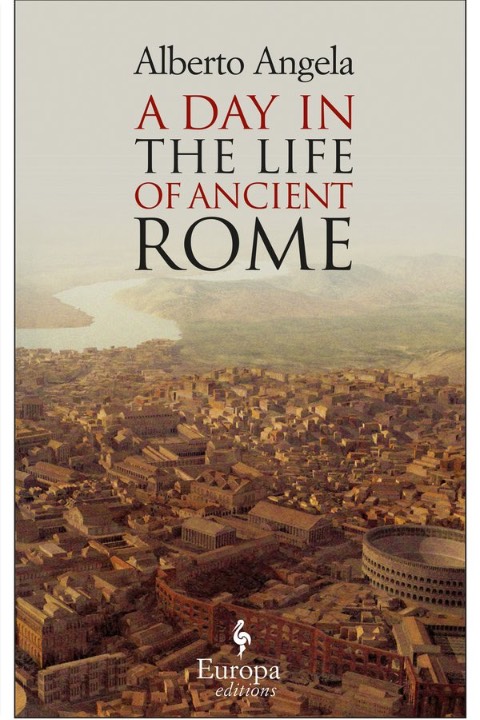In 150 BC, Cato the Elder arrived in the Senate House in Rome with an eye-catching basket of figs. This redoubtable statesman — often referred to as ‘censorius’, an epithet I have coveted since my childhood — was famous, apart from his censoriousness, for his conviction that the most important thing for Rome at any given moment was the military destruction of its enemy, Carthage.
Yet here he was, instead of making another swingeing speech on that topic, apparently about to eat his lunch. Cato picked out an especially juicy looking fig. He took a bite. And then he asked, in his most censorious of tones, ‘Do you know where these figs come from?’ As was his habit, he answered his own question. ‘Carthage! That’s right. That’s how close the enemy are to our gates!’ This coup de théâtre so impressed his fellow senators that they immediately launched the Third Punic War, which resulted in Carthage’s annihilation.
Now that’s not a bad anecdote. It’s all right. It’s OK But I’m sorry to report that it’s the only half-decent story we get in Alberto Angela’s A Day in the Life of Ancient Rome. Nor, bizarrely, are we treated to any substantial quotations from the classical canon. We get nothing from Cicero’s humanist letters, or Ovid’s guide to getting laid. Barely a word from Horace, or Pliny, or Suetonius. And you can’t look them up in the index, because there isn’t one. Angela’s response to all this, presumably, would be to point out that it wasn’t the remit he set himself — which, specifically, was to take the ignorant reader by the hand, and guide him or her through the city during an average day in AD 115, during Trajan’s reign, when Roman grandeur was at its height.
Could one compare his role, then, to that of the Sibyl leading Aeneas through the Underworld? No, that might seem off-puttingly erudite. He’s more like a TV presenter beckoning us through an expensive stage set, with asides, and double-takes, and unceasing cries of surprise. For Angela — who as a matter of fact is a TV presenter, best known in Italy for hosting science programmes — is constantly surprised by what he sees, and constantly insists that we might like to feel equally surprised.
‘We’re surprised’, he informs us early on, by the size of the bed in the house of a well-off Roman. (It’s tall, with a ladder to help you up.) It is ‘surprising’, he tells us later, to learn that Christianity and the religion of the Persian god Mithras have elements in common. It ‘may come as a surprise’, moreover, to learn that the Roman habit of wearing a phallic symbol around the neck has survived until today in the form of necklaces with horn-shaped pendants.
Meanwhile, the fondness of Roman matrons for applying moles to their faces is something Angela finds ‘particularly surprising’. I must admit, though, that I really was quite surprised, as a result, when the author came to the Roman habit of cleaning the teeth with urine, and chose to describe it as merely ‘a little disconcerting’.
In fact, though, Angela is at his best when writing about matters lavatorial. There’s a jolly passage where we see Romans seated side by side on benches perforated with holes, so that they might, as he oddly puts it, ‘explicate their bodily functions’. Once this business was over, they reached for a stick with a sponge on the end, and poked it about to clean their bottoms. Yet even here, he can’t resist telling us how to feel. ‘The amazing thing,’ he writes, ‘or better, the utterly dumbfounding thing, is the total lack of privacy.’ That’s right, Alberto. Dumbfounding. That’s much better.
It’s hard, with a book like this, to locate the dividing lines between bad writing, bad translating and bad editing. The Italian version boasted a sexy picture of the handsome presenter on the front, which helps explain its appeal in the land of his birth. The image has been erased from the English edition, because no one here has heard of him.
Jibes aside, the real problem with A Day in the Life of Ancient Rome is that it’s neither a work of scholarship nor a full fictional recreation of life in Trajan’s capital. The author’s occasional novelistic flourishes are pretty dismal. Describing a huntsman in his section on the Colosseum, he writes, ‘His sky-blue eyes are set like jewels in his tanned face.’ One imagines Angela may have glanced up at his desktop mirror before penning this epigram. But the nadir, for me, was when he compared the lanterns outside brothels to ‘lighthouses attracting the moths of sex’.
The moths of sex? And why lighthouses, if you please? It’s enough to make me quite censorious.

